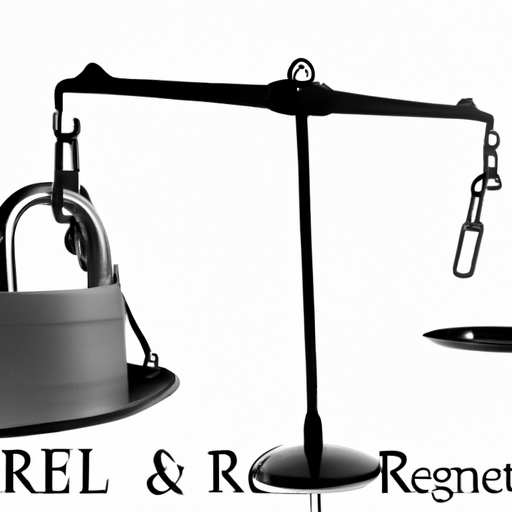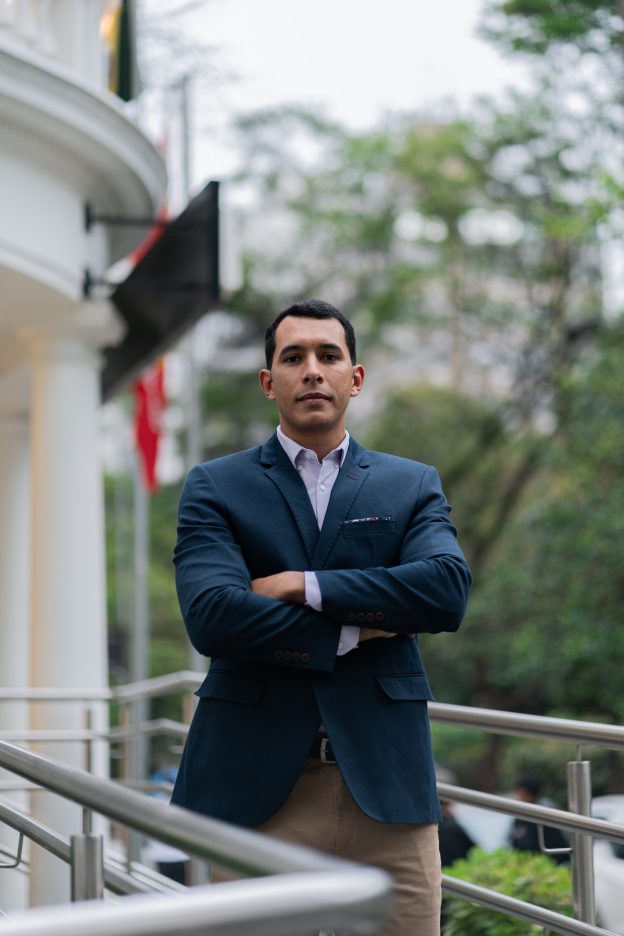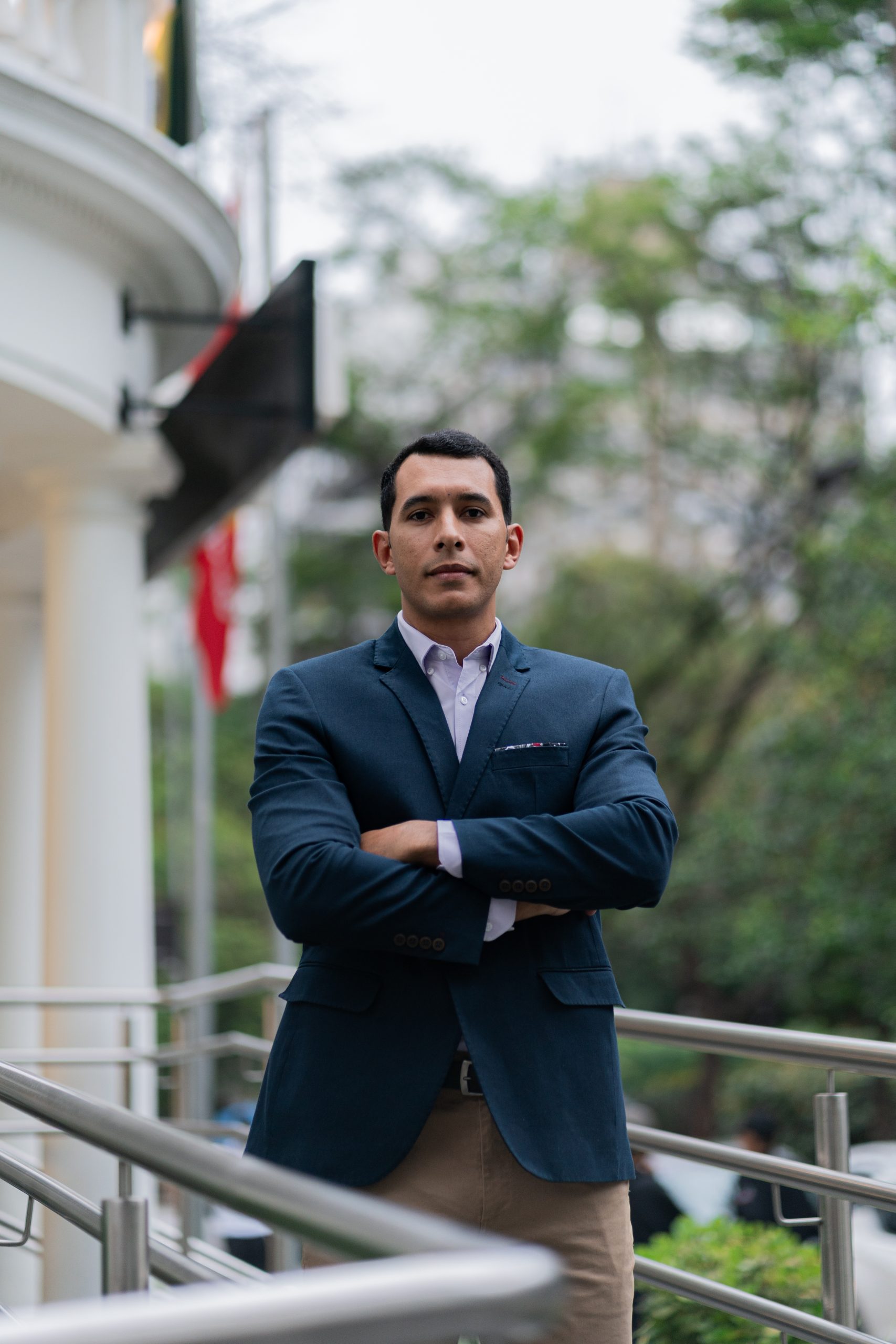Are you in need of a knowledgeable and efficient commercial real estate lawyer in St. George, Utah? Look no further than Jeremy Eveland, your trusted legal expert in the field. With extensive experience and a deep understanding of the intricacies involved in commercial real estate transactions, Jeremy Eveland is dedicated to providing top-notch legal services tailored to meet your specific needs. Whether you require assistance with property purchases, lease agreements, or resolving disputes, Jeremy Eveland is here to guide you through the process and ensure that your interests are protected. Don’t hesitate to reach out and schedule a consultation today to discuss your commercial real estate needs and find out how Jeremy Eveland can help you achieve your goals.
What is Commercial Real Estate Law?
Commercial Real Estate Law refers to the legal framework and regulations that govern the buying, selling, leasing, and development of commercial properties. It encompasses a wide range of legal issues and considerations that are specific to commercial real estate transactions and investments. Whether you are a business owner looking to lease a property, a developer planning to construct a new commercial building, or an investor interested in purchasing commercial real estate, understanding and complying with commercial real estate law is essential to protect your interests and ensure a smooth and successful transaction.
Definition
Commercial Real Estate Law focuses on the legal aspects of commercial property, which includes office buildings, retail spaces, industrial warehouses, hotels, and other properties used for business purposes. It covers various areas such as property acquisition and disposition, leasing, financing, land use and zoning, environmental regulations, and dispute resolution. Commercial real estate lawyers specialize in providing legal advice and representation to clients involved in commercial real estate transactions, helping them navigate the complex legal landscape and achieve their objectives while minimizing legal risks and complications.
Importance of Commercial Real Estate Law
Commercial real estate transactions involve substantial investments and complex legal issues. Adhering to commercial real estate law is crucial to protect the rights and interests of all parties involved, minimize potential disputes and litigation, and ensure the enforceability of contracts and agreements. Failure to understand and comply with commercial real estate laws can result in financial losses, legal disputes, and damage to a business’s reputation. Therefore, it is essential to work with a knowledgeable and experienced commercial real estate lawyer to ensure that all legal requirements are met and that your interests are well-protected throughout the transaction process.
Why Do You Need a Commercial Real Estate Lawyer?
Engaging the services of a commercial real estate lawyer is vital to navigate the complexities of commercial real estate transactions effectively. Here are some key reasons why you need a commercial real estate lawyer:
Expertise in Commercial Real Estate Law
Commercial real estate law is highly specialized and intricate. A commercial real estate lawyer has in-depth knowledge and expertise in this field, ensuring that you receive accurate legal advice and guidance tailored to your specific commercial real estate needs. They can help you understand the legal implications and risks associated with your transaction, identify any potential issues, and develop strategies to mitigate those risks.
Navigating Complex Transactions
Commercial real estate transactions involve numerous legal documents, including contracts, leases, titles, and financing agreements. These documents can be complex and confusing for someone without legal expertise. A commercial real estate lawyer can guide you through the entire transaction, explaining the legal jargon and ensuring that all necessary documents are properly drafted, reviewed, and executed. They will ensure that your interests are protected, and any potential pitfalls are identified and addressed.
Drafting and Reviewing Contracts
Contracts play a vital role in commercial real estate transactions, outlining the rights, obligations, and responsibilities of all parties involved. To protect your interests, it is crucial to have well-drafted contracts that accurately reflect your intentions and expectations. A commercial real estate lawyer can draft and review contracts, such as purchase agreements, lease agreements, and financing documents, to ensure that they are legally binding, comprehensive, and favorable to your position. They will carefully review contract terms, negotiate on your behalf, and make necessary amendments to safeguard your interests.

Services Provided by a Commercial Real Estate Lawyer
Commercial real estate lawyers offer a wide range of services to assist clients with their commercial real estate needs. Here are some of the services provided by a commercial real estate lawyer:
Purchase and Sale Transactions
Commercial real estate lawyers facilitate the purchase and sale of commercial properties. They assist in negotiating purchase agreements, conducting due diligence, reviewing title reports, coordinating property inspections, and ensuring compliance with all legal requirements. Their expertise allows them to identify any potential issues or risks associated with the transaction and provide guidance to protect their clients’ interests.
Lease Agreements
Commercial leases are complex legal agreements that govern the use and occupancy of commercial properties. A commercial real estate lawyer can help both landlords and tenants negotiate and draft lease agreements that accurately reflect their respective rights and obligations. They ensure that all lease terms are clear and favorable to their clients, covering important aspects such as rent, maintenance responsibilities, lease duration, renewal options, and dispute resolution mechanisms.
Title Examination and Insurance
A commercial real estate lawyer assists clients in conducting thorough title examinations to ascertain the legal ownership and status of the property. This involves reviewing public records, deeds, and other relevant documents to identify any potential title issues that may affect the transaction. They can also help clients obtain title insurance, which protects against unforeseen claims or defects in the title that may arise after the purchase.
Land Use and Zoning
Compliance with land use and zoning regulations is crucial in commercial real estate development. A commercial real estate lawyer can assist clients in navigating the complex web of land use and zoning laws, ensuring that their proposed projects comply with applicable regulations. They can provide advice on zoning restrictions, required permits, variances, and other regulatory requirements imposed by local authorities.
Property Development and Construction
For clients involved in property development and construction projects, a commercial real estate lawyer can provide legal counsel throughout the entire process. They assist with obtaining necessary permits and approvals, negotiating construction contracts, handling contractor disputes, and ensuring compliance with building codes and regulations. Their expertise in construction law helps mitigate risks and ensure the successful completion of projects.
Environmental Issues
Commercial real estate transactions often involve environmental considerations and potential liabilities. A commercial real estate lawyer can conduct environmental due diligence to identify any existing environmental issues that may impact the property. They can advise on compliance with environmental regulations, assist in obtaining necessary permits, and negotiate the allocation of environmental liabilities between parties.
Financing and Mortgages
Commercial real estate transactions often require financing, which involves complex legal and financial arrangements. A commercial real estate lawyer can assist clients in negotiating loan terms, reviewing mortgage documents, and ensuring compliance with lending regulations. They can help structure financing arrangements that best suit their clients’ needs while minimizing legal and financial risks.
Litigation and Dispute Resolution
In the unfortunate event of a dispute or litigation arising from a commercial real estate transaction, a commercial real estate lawyer can provide legal representation and advocate for their clients’ interests. They can handle disputes related to contract breaches, lease disagreements, title defects, construction defects, and other legal issues that may arise. They will strive to achieve a favorable resolution through negotiation, mediation, arbitration, or, if necessary, litigation in court.
Qualities of a Good Commercial Real Estate Lawyer
When choosing a commercial real estate lawyer, it is essential to look for certain qualities that will ensure effective legal representation. Here are some key qualities to consider:
Experience and Expertise
A good commercial real estate lawyer should have substantial experience and expertise in handling commercial real estate transactions. Look for a lawyer who has successfully handled similar cases, understands the nuances of commercial real estate law, and has a track record of delivering favorable outcomes for their clients. Their experience allows them to anticipate potential issues and provide effective strategies to address them.
Attention to Detail
The intricacies of commercial real estate transactions demand a high level of attention to detail. A good commercial real estate lawyer pays meticulous attention to all legal documents and contract terms, ensuring that nothing is overlooked or left ambiguous. They have the ability to spot potential issues and risks that may go unnoticed by an untrained eye, thereby protecting their clients’ interests.
Negotiation Skills
Negotiation is an essential aspect of commercial real estate transactions. A skilled commercial real estate lawyer is an effective negotiator who can advocate for their clients’ interests and secure favorable terms. They will have a thorough understanding of the transaction’s dynamics, identify opportunities for negotiation, and employ tactful strategies to achieve the best possible outcome.
Industry Network
A good commercial real estate lawyer has a strong network within the industry, comprising professionals such as brokers, appraisers, lenders, and other relevant stakeholders. This network allows them to access valuable resources, gather important market information, and leverage relationships to benefit their clients. It also demonstrates their involvement and reputation within the commercial real estate community.
Client Testimonials
Client testimonials and reviews can provide insight into the quality of service and client satisfaction provided by a commercial real estate lawyer. Look for lawyers with positive testimonials and recommendations from past clients, as this indicates their ability to deliver exceptional results and provide a positive client experience.

Choosing a Commercial Real Estate Lawyer in St. George, Utah
If you are in need of a commercial real estate lawyer in St. George, Utah, here are some steps to help you make an informed decision:
Research and Referrals
Start by conducting thorough research to identify potential commercial real estate lawyers in St. George, Utah. Explore their websites, review their qualifications and experience, and read any client testimonials or reviews available. Additionally, seek recommendations from trusted individuals in your network who may have worked with commercial real estate lawyers in the past.
Initial Consultation
Arrange an initial consultation with the shortlisted lawyers to discuss your commercial real estate needs and evaluate their suitability for your case. During the consultation, pay attention to their responsiveness, communication style, and the level of interest they show in understanding your specific requirements. Ask questions regarding their experience, previous cases, and their proposed strategies for your transaction.
Fee Structure
Discuss the fee structure with the potential lawyers to ensure that it aligns with your budget and expectations. Some lawyers may charge an hourly rate, while others may offer fixed or contingent fees. It is important to have a clear understanding of their billing practices, including any additional costs or expenses you may be responsible for.
Comfort and Trust
Choose a commercial real estate lawyer with whom you feel comfortable and can trust to protect your interests. Effective communication and a strong rapport are crucial for a successful attorney-client relationship. Trust your instincts and consider how well the lawyer understands your needs, responds to your questions and concerns, and demonstrates a genuine commitment to achieving your goals.
Communication
Clear and open communication is essential when working with a commercial real estate lawyer. Ensure that the lawyer places importance on regular updates and keeps you informed of any developments or changes in your case. Prompt and responsive communication will help you stay informed and enable you to make well-informed decisions throughout the transaction process.
Working with a Commercial Real Estate Lawyer
Once you have chosen a commercial real estate lawyer in St. George, Utah, there are several key factors to consider when working with them:
Open and Clear Communication
Maintain open and clear communication with your commercial real estate lawyer. Clearly articulate your goals and objectives, and provide them with all the necessary information and documents they require. Respond promptly to their inquiries and requests for information to ensure that your case progresses smoothly.
Timeliness and Responsiveness
A good commercial real estate lawyer should be timely and responsive in their communication. They should promptly return your calls and emails and provide updates on the progress of your case. They should also proactively inform you of any potential issues or delays that may arise and discuss strategies to address them.
Collaborative Approach
Working collaboratively with your lawyer allows for a more effective and efficient resolution of your commercial real estate matters. Share your insights, concerns, and preferences to help your lawyer develop strategies that align with your goals. Actively participate in discussions and decision-making processes to ensure that your interests are well-represented.
Regular Updates
Regular updates from your commercial real estate lawyer are crucial to keeping track of the progress of your case. Establish a schedule for updates and discuss your preferred method of communication. Ensure that your lawyer provides regular written or verbal updates, particularly regarding any critical developments or changes that may arise.
Professionalism and Ethics
A good commercial real estate lawyer upholds the highest standards of professionalism and ethics. They should ensure that all their actions align with legal and ethical codes of conduct. They should prioritize your interests above their own and act with integrity throughout the entire attorney-client relationship.
Common Challenges in Commercial Real Estate Transactions
Commercial real estate transactions can present various challenges and complexities. Here are some common challenges to watch out for:
Complex Legal Framework
The legal framework governing commercial real estate transactions can be complex and vary from jurisdiction to jurisdiction. Compliance with lease laws, zoning regulations, building codes, and environmental requirements is crucial but can be challenging to navigate without proper legal guidance.
Title and Financing Issues
Title defects, encumbrances, and financing challenges can arise during commercial real estate transactions. Issues related to unclear titles, discrepancies in property boundaries, or invalid liens can complicate the purchase or sale of a commercial property. Ensuring proper title examination and resolving any title or financing issues is essential to avoiding legal complications.
Environmental Regulations
Environmental regulations and concerns play a significant role in commercial real estate transactions. Complying with environmental impact assessments, obtaining necessary permits, and mitigating potential environmental liabilities all require careful attention and expertise. Failure to address environmental obligations can lead to legal disputes, financial penalties, and reputational damage.
Lease Disputes
Lease disputes can arise between landlords and tenants, resulting from issues such as rent payment disputes, maintenance responsibilities, lease termination, or non-compliance with lease terms. Resolving lease disputes requires careful analysis of lease agreements and an understanding of applicable laws and contractual obligations.
Contract Breaches
Contract breaches can occur when one party fails to fulfill their obligations as outlined in a contract. Breaches in commercial real estate transactions can result in significant financial losses and damage to professional relationships. Timely identification of breaches and effective resolution is crucial to protect your interests and enforce the terms of the contract.
Recent Developments in Commercial Real Estate Law
The field of commercial real estate law is constantly evolving to adapt to changing societal, technological, and environmental realities. Here are some recent developments shaping commercial real estate law:
Impact of COVID-19 on Commercial Real Estate
The COVID-19 pandemic has significantly impacted the commercial real estate industry. It has led to an increase in lease disputes, re-negotiations of lease terms, and a shift in the demand for commercial properties. Commercial real estate lawyers have been instrumental in advising clients on the legal implications of the pandemic and helping them navigate through its challenges.
Sustainability and Green Initiatives
With increasing focus on sustainability and environmental responsibility, commercial real estate law has seen developments regarding green building certifications, energy efficiency requirements, and renewable energy installations. Commercial real estate lawyers play a crucial role in ensuring compliance with these initiatives and advising clients on the legal implications and benefits of sustainable practices.
Technology and Data Privacy
Advancements in technology have transformed the commercial real estate industry. Electronic signatures, virtual property tours, and online transactions have become commonplace. Commercial real estate lawyers help clients adapt to these technological advancements while safeguarding data privacy and security in compliance with applicable privacy laws.
Changes in Zoning and Land Use Regulations
Zoning and land use regulations continue to evolve to accommodate changing community needs and economic trends. Commercial real estate lawyers assist clients in navigating changes in zoning regulations, obtaining necessary permits and variances, and ensuring compliance with land use requirements.

Frequently Asked Questions (FAQs)
Here are answers to some frequently asked questions about commercial real estate law:
What is the role of a commercial real estate lawyer?
A commercial real estate lawyer provides legal advice and representation to clients involved in commercial real estate transactions. They assist with various aspects, including property acquisitions and sales, leasing agreements, title examinations, land use and zoning, property development, construction, financing, and dispute resolution.
How much does a commercial real estate lawyer charge?
The fees charged by commercial real estate lawyers can vary depending on factors such as the complexity of the transaction, the lawyer’s experience, and the geographic location. Lawyers may charge an hourly rate, a fixed fee, or a percentage of the transaction value. It is important to discuss fee structures and expectations with your lawyer upfront.
What should I expect during the initial consultation?
During the initial consultation, you can expect to discuss your commercial real estate needs and objectives with the lawyer. They will inquire about the specifics of your transaction and ask for relevant documentation. The lawyer may provide an overview of their experience and expertise, discuss their proposed approach, and answer any questions you have.
What should I bring to the initial consultation?
To make the most of your initial consultation, come prepared with any relevant documentation, such as purchase agreements, lease agreements, property descriptions, or financing documents. Providing the lawyer with all the necessary information upfront will help them better understand your case and provide more accurate advice.
How long does a commercial real estate transaction take?
The duration of a commercial real estate transaction can vary depending on various factors, such as the complexity of the transaction, parties involved, and the efficiency of the legal process. Some transactions can be completed within a few weeks, while others may take several months. Your lawyer can provide a more accurate timeline based on the specifics of your case.
Conclusion
Commercial real estate law is a complex and specialized field that requires expert legal guidance to navigate successfully. Whether you are buying, selling, leasing, or developing commercial properties, working with an experienced commercial real estate lawyer is vital to protect your interests, ensure compliance with legal requirements, and achieve your objectives. By understanding the importance of commercial real estate law, knowing the services provided by a commercial real estate lawyer, and recognizing the qualities to look for in legal representation, you can make informed decisions and safeguard your commercial real estate ventures in St. George, Utah.













































